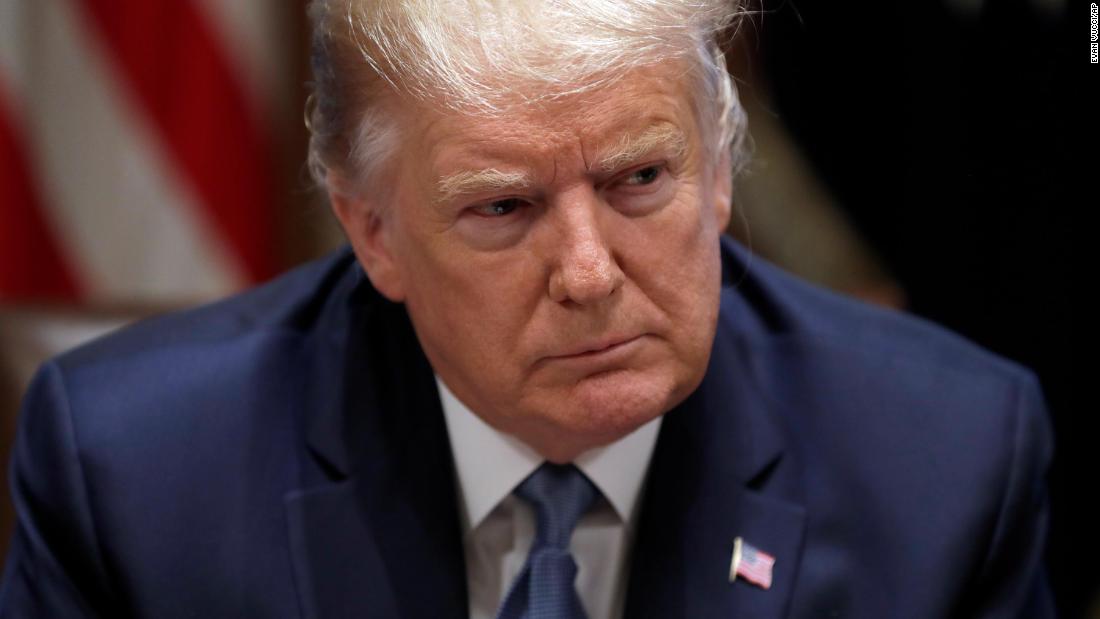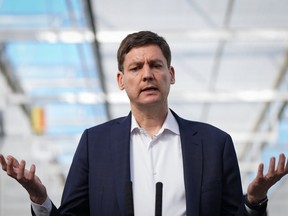How did we get here? How did Trump wind up on the verge of impeachment? Well, his sources of information led him astray. He was misinformed by the shows and sites he was watching and reading.
To be clear: His choices, what Trump did with the information — the withholding of aid money, the alleged shakedown of the Ukrainian president, the claims that it was a “perfect” phone call — that’s all his own doing. Trump is responsible for what he did. But what he was hearing from right-wing media was crucial. The conspiratorial bent of his favorite talk shows was critical.
Here’s the thing: The pro-Trump media bubble did not actually help Trump. To the contrary, it led him to the brink of impeachment…
Ari Melber’s point
MSNBC’s Ari Melber made a similar point about the power of right-wing media last week. The web headline: “Trump could be impeached partly for admissions on Fox News.”
“Democrats think they can prove key, damning parts of this plot based partly on these scheming and intimidating statements in public, specifically broadcast live on Fox,” Melber said, “which looks especially bad because it was occurring before this whistleblower came forward.”
“The impeachment probe is finding evidence that Trump’s Ukraine plot was fundamentally about propaganda,” he added. “The goal was pushing Ukraine to damage the Bidens in public, not about actually investigating foreign corruption. It was about getting talk of Biden and corruption on American television — in a loop from Fox News, back to Ukraine, back to CNN — an entire political conversation that was designed to tarnish the Biden brand.”
Americans say they are paying attention
This data is a counterpoint to the claims about “impeachment fatigue:” Three out of four Americans say they are following the impeachment proceedings at least “somewhat closely,” according to CNN’s new poll conducted by SSRS. In the poll, 42% of respondents said very closely, 34% said somewhat closely, 12% said not too closely, and 11% said not closely at all. The margin of error was +/- 3.7 points.
The poll found “support for impeaching Trump and removing him from office stands at 45% in the new poll, down from 50% in a poll conducted in mid-November.” Details here…
— One of the most interesting findings: “Among those who oppose impeachment, more cite Trump’s job performance as a major reason for their views than say it’s because the president is innocent of the charges,” Jennifer Agiesta pointed out…
The question of the day is…
Quoting from Chris Cuomo’s lead on his Monday night show: “The toughest question, the toughest situation here for us, is the unknown: Will we ever hear from the people with the most direct knowledge of this Ukraine fiasco?” Mick Mulvaney, John Bolton and a couple of others “should know a lot about why aid to Ukraine was held up. And they’ve all been silenced by this president. And they may be kept quiet by Senate Republicans who seem intent to hold a trial with no witnesses…”
The ‘Lie of the Year’ is…
I suppose I should ask for a drumroll, please…
The Lie of the Year 2019, according to PolitiFact, is Trump’s claim that the “whistleblower got Ukraine call ‘almost completely wrong.'”
“Despite what Trump claims, the whistleblower got the call ‘almost completely’ right,” the editors noted. Because there was so much to fact-check, PolitiFact also released a list of “10 things Donald Trump got wrong about impeachment in 2019.”
And speaking of shocking falsehoods…
The WaPo Fact Checker’s database of every suspect statement by Trump now has a total of 15,413 false or misleading claims since inauguration day.
The new data came out on Monday. Glenn Kessler, Salvador Rizzo and Meg Kelly wrote, “The president apparently believes he can weather an impeachment trial through sheer repetition of easily disproven falsehoods.”
— BIG PICTURE: Kessler also noted that “Trump said more false or misleading claims in 2019 than he did in 2017 and 2018 combined…”
More media news: The start of the Jeff Shell era at NBC
Jeff Shell will lead NBCUniversal into the streaming wars. He will take over for Steve Burke on January 1, assuming the CEO spot just a couple of weeks before the company’s big Peacock streaming service presentation to investors, and a few months before Peacock launches to the public.
Comcast made this succession plan official on Monday morning… Burke will be bumped up to chairman from January until August, through the Summer Olympics, when he will retire from the company…
What’s next for Steve Burke?
More time at his ranch? Here’s what the LAT’s Meg James reported the other day: “Burke has said that he had little interest in competing against Comcast. He previously told The Times that he had no intention of clinging to power long past his prime. Burke is expected to spend more time on his Montana ranch or pursue something in the investing world. He has made a fortune at Comcast (his annual compensation typically tops $30 million) and has the financial chops…”
New law leads Vox Media to forego freelancer model in California
Kerry Flynn writes: Vox Media will part ways with hundreds of freelance writers in the wake of California’s AB5, CNBC reports. The new law, set to go in effect January 1, affects several gig economy jobs including those at ride-hailing companies and food-delivery startups. It also forbids freelancers from submitting more than 35 articles per year to an outlet. (THR wrote about the dilemma for freelancers in October.) Instead of allowing California freelancers to work within that limit, Vox Media’s SB Nation has chosen to forego their contractor model for blogging about California teams and instead hire full-time and part-time employees…
— SB Nation’s executive director John Ness wrote, “We know many of our California contractors already have other full-time jobs and may not have the bandwidth to apply, but we hope to see many of them join us as employees…”
Axios raising $20 million+
Kerry Flynn writes: Axios is expected to raise at least $20 million in a new funding round, led by Glade Brook Capital, Recode’s Peter Kafka and Theodore Schleifer report. This funding would give the company a value of about $200 million.
The Information said last month that this round was in the works. Per Recode, “the new round is supposed to be ‘opportunistic’ — meaning Axios is taking the money because it’s available on good terms. That’s a very different scenario than the one facing many other digital media publishers, many of which found it relatively easy to raise money five or six years ago…”




















